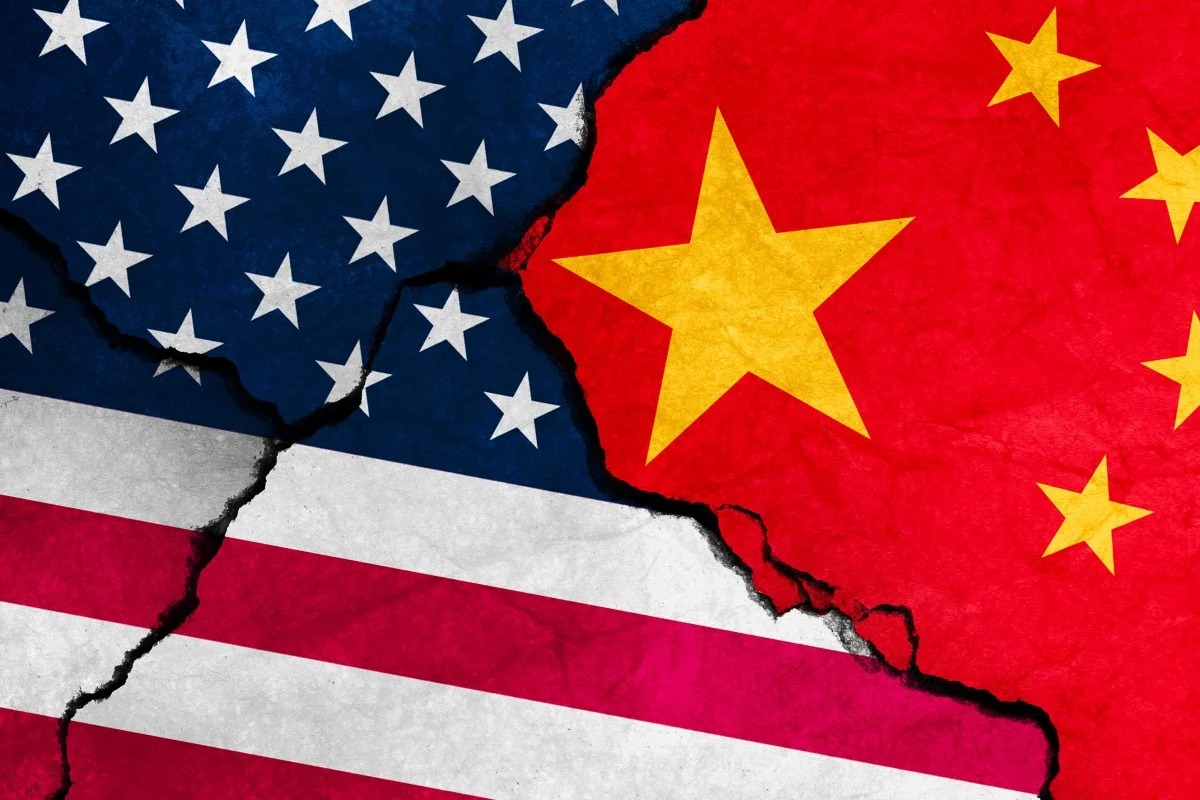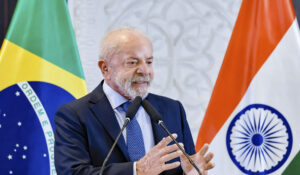
Published 09/04/2025 09:55 | Edited 09/04/2025 11:41
The trade war between the United States and China had a new climb on Wednesday (9), with the entry into force of 104% tariffs on Chinese products decreed by Donald Trump. In an immediate response, China’s Ministry of Finance has announced additional 84% tariffs on all US imports. Retaliation directly affects US companies that export to the Chinese market and expands the fear of global recession.
The Xi Jinping government promised to “fight to the end” in the face of what it classifies as a “tariff blackmail”. The new measure is accompanied by the inclusion of six US companies on the list of “unconvable” entities, which makes their performance in the Asian country difficult. Among the targets are Sierra Nevada Corporation, the aerospace and defense sector, and multinationals in the area of Artificial Intelligence.
In addition, China formally filed its complaint to the World Trade Organization (WTO), accusing the US of violating the principles of multilateralism. “As one of the affected members, China expresses serious concern and opposition to this reckless measure,” said the Chinese delegation.
China seeks international support and reaffirms regional leadership
Also on Wednesday, Chinese President Xi Jinping made a statement during the conference on relations with neighboring countries. At the event, he defended the construction of a “community with shared future” and stressed the importance of multilateral cooperation. The speech has repercussions especially between Southeast Asia countries-such as Thailand, Vietnam and Cambodia-which were also hit by US tariffs.
Reporters linked to the government criticize countries that, according to them, would be “knees asking for tariff relief” to Washington. The narrative drives Chinese appeal through a new multipolar economic order, centered on multilateral rules and not US unilateral impositions.
China also reaffirmed its willingness to maintain the encouragement of the economy. According to People’s Dailyinterest and bank compulsory cuts are under study, as well as measures to encourage export and domestic consumption. Since the beginning of the week, state -owned companies have again bought stocks to stabilize markets – the strategy is coordinated by the Central Bank and Central Huijin Investment.
Immediate impacts on global markets and trade
Trump’s tariffs began to take place shortly after the failure of an attempt to contact the Chinese leadership. According to White House sources, the US President expected a call from Xi Jinping before the announcement. The connection did not come. Instead, Beijing reinforced his rhetoric against “commercial bullying” and released a white paper (white book) explaining your position in commercial disputes.
US overcutments were applied widespreadly: 104% for China, 50% for countries such as Japan and South Korea, and 10% for Brazil. The criteria used by the Trump administration were criticized: the formula for calculating tariffs was based on the division of bilateral deficit between countries by import volume, and then half – method described as “rudimentary” even by conservative analysts.
The impacts began to be felt. Apple has lost more than $ 300 billion in market value since the first ads. Alphabet, Amazon and Meta are also under pressure, given the possibility of new barriers to the service sector – precisely where the US maintains surplus. The Chinese state media already ventilate the adoption of sanctions on consulting firms, law firms and even banishment of American films, citing the recent failure of “snow white” in the US as a justification.
Isolation and Risks for the USA
Amid criticism, the US government maintains the speech that tariffs will serve to renegotiate agreements. Trump has said that more than 70 countries have been looking for Washington to discuss exceptions and concessions. However, according to a report by The Economistinterlocutors such as the EU Commerce Commissioner, Marošefčovič, left frustrated meetings that there were no advisors with authority to negotiate.
Even among allies, the discomfort grows. The president of the European Commission, Ursula von der Leyen, stated that the bloc prepares new retaliation. Brazil, in turn, studies taking the case to the WTO.
Federal Reserve President Jerome Powell acknowledged that tariffs should press prices and increase the risk of recession. It is expected to cut interest rates in May in an attempt to contain the slowdown in consumption.
Unprecedented historical dispute
The 2025 tariff climbing is already considered the most disruptive measure in the history of international trade. According to analysis of The Economistnot even the 1930 Smoot-Hawley Act-symbol of protectionism during the great depression-had such a comprehensive impact.
The “tariff reciprocity” system adopted by Trump has been pointed out as a direct attack on the structure of the World Trade Organization. The editorial of People’s DailyCommunist Party organ in China, accused the US of “turning the ‘America first’ into ‘America Only’. white paper Published on Wednesday (9), the Chinese government reaffirms that “the only rational output” is the return to dialogue based on equality, mutual respect and reciprocal gains.
Source: vermelho.org.br

